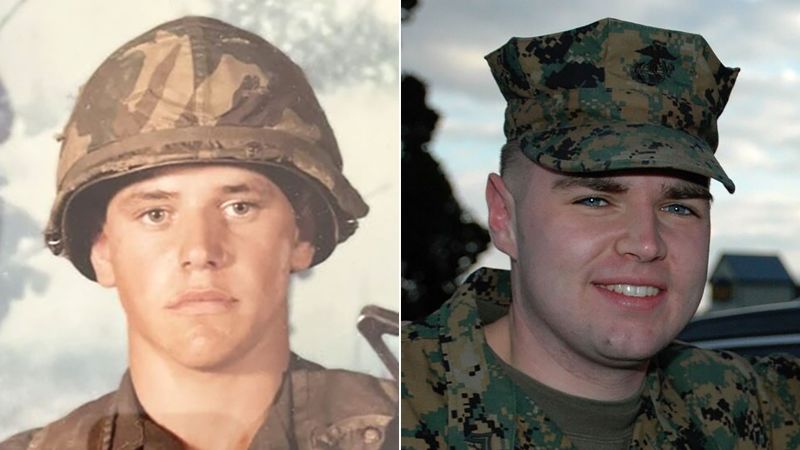Retired Staff Sgt. Ryan Marti and Lt. Col. Jonathon Jaqua both credit their decision to join the Army National Guard to their former high school teacher and football coach, Tim Walz, who later became the Democratic nominee for vice president. Similarly, Ohio Sen. JD Vance, the Republican vice presidential nominee, enlisted in the military after high school and spent four years in the Marines, serving in Iraq in 2005. Both Walz and Vance, who are on opposite sides of the political spectrum, share the rare distinction of being enlisted military veterans running for vice president.
Walz and Vance both used their military service as a springboard to attend college with the help of the GI Bill. Their military colleagues recognized their leadership, talent, and political aspirations even during their time in uniform. Despite being politically opposed, they exhibited qualities that would guide their political careers, with Walz known for his positive mindset and Vance being described as mature beyond his years and capable of handling tasks typically given to more senior officers.
While both Walz and Vance faced scrutiny over their military records, with Vance criticizing Walz’s military service after being chosen as a vice presidential nominee, many of their colleagues from the military speak highly of them. Despite their different paths and experiences in the military, both Walz and Vance left the service with a critical view of the United States’ actions during the global war on terror, shaping their political views as they launched their respective political careers.
Walz’s former students who served with him in the Guard praised his leadership and motivation, highlighting his ability to inspire and help others excel in various situations. Vance’s colleagues from the Marines also spoke highly of his natural talent for public affairs and his ability to handle responsibilities beyond his rank. Both men have faced criticism for aspects of their military service, but they have also received support from those who served closely with them.
Walz’s decision to retire from the Guard before his unit deployed to Iraq in 2006 has been met with criticism from some former colleagues who believe he abandoned them. However, others defend his choice, noting that he had been considering a run for Congress and felt serving in a different capacity was the best route for him. Vance’s military service and subsequent success in politics have been marked by his opposition to US involvement in Iraq and Afghanistan, advocating for issues affecting veterans and National Guardsmen.
Despite the criticism they have faced, both Walz and Vance have emphasized their military service as part of their political narrative. Walz focused on his military service, teaching experience, and opposition to the Iraq War in his campaign for Congress, while Vance highlighted his military background and successful career in venture capital during his Senate campaign. Their divergent paths after the military have led them to political success, with both men drawing on their military experiences to shape their views and advocacy in public office.


